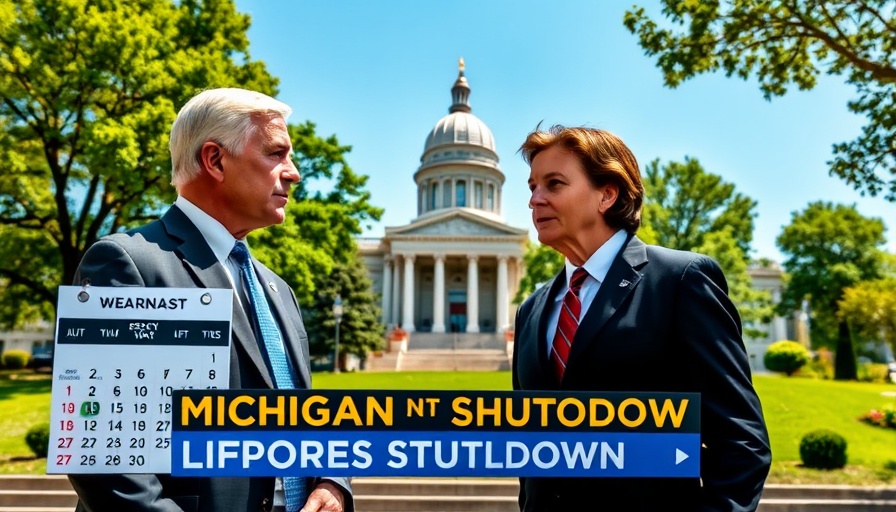
Countdown to State Budget Deadline: What's at Stake?
With just a few weeks remaining until the October 1st deadline, Michigan's state budget situation hangs in the balance, stirring concerns among citizens and state officials alike. Lawmakers are facing a critical juncture—what happens if no new state budget is adopted by the deadline? Insights from political insider Tim Skubick shed light on the possible repercussions and the Governor's pivotal role in managing the state's affairs if lawmakers fail to reach an agreement.
In 'The state budget clock is ticking with an Oct. 1 deadline in Lansing,' we explore the potential ramifications of the looming deadline while examining the dynamics between the legislature and the Governor.
The Governor’s Authority: A Double-Edged Sword
As history has shown, in the absence of a compliant budget, the Governor can exercise considerable power. Tim Skubick emphasizes that the state's Constitution grants the Governor comprehensive authority to execute laws and oversee state departments without needing legislative approval. This could lead to drastic measures reminiscent of past government shutdowns, where state services came to a halt, significantly affecting state workers, contractors, and essential public services.
Past Lessons: Government Shutdowns in Michigan
Looking back at Michigan's past budget crises, we see that the state has endured two notable shutdowns during Jennifer Granholm's tenure as Governor in 2007 and 2009. These shutdowns, though brief, had impactful consequences, including layoffs for a significant portion of state employees and disruption to various government services. Such events have created a cautionary tale for current lawmakers and citizens alike, compelling them to consider the implications of another potential budget failure.
Implications for State Workers and Services
The risk of state workers facing unpaid leave is not just hypothetical. As Tim Liddell notes, some workers might refuse to continue their duties without guaranteed payment. This raises serious questions about public welfare—if essential employees, such as state police officers or corrections staff, decide to halt their services, public safety could be at considerable risk. Without a fully-operational budget, the repercussions could ripple through all sectors dependent on state funding, from construction projects to community services.
Contingency Plans in Place: What to Expect
Fortunately, Governor Gretchen Whitmer has indicated that contingency plans are underway. One viable solution could involve the passage of a continuation budget, which would ensure that state operations can continue even as lawmakers negotiate a comprehensive budget. If duly implemented, such a strategy could mitigate the risks posed by a permanent shutdown, assuring citizens that essential services remain funded and operational.
Federal Shutdown Complications: A Unique Crisis
The unfolding drama is further complicated by the looming threat of a federal government shutdown on the same October 1st date. This unprecedented dual-budget crisis means that Michigan might be grappling with its restrictions at a time when federal funding could also be interrupted. How the state navigates this complex landscape could serve as a litmus test for political leadership in Michigan's current climate.
Call to Action: Stay Informed
For residents of Michigan and Metro Detroit, staying informed about these developments is crucial. As the stakes remain high, paying attention to legislative updates and participating in discussions on government performance can empower citizens in their civic duties. Keep an eye on local news alerts and updates regarding the state budget, as these decisions will affect everyone from public workers to community service providers.
Conclusion: The Path Ahead
As the October 1st deadline draws closer, the ongoing discussions around Michigan's state budget are more critical than ever. The potential shutdown carries with it the possibility of widespread impacts on services, employees, and public welfare. Being aware and engaged in this critical moment can better educate Michiganders on the functioning of their state government, fostering a more informed and responsible electorate in the process.
 Add Row
Add Row  Add
Add 



Write A Comment